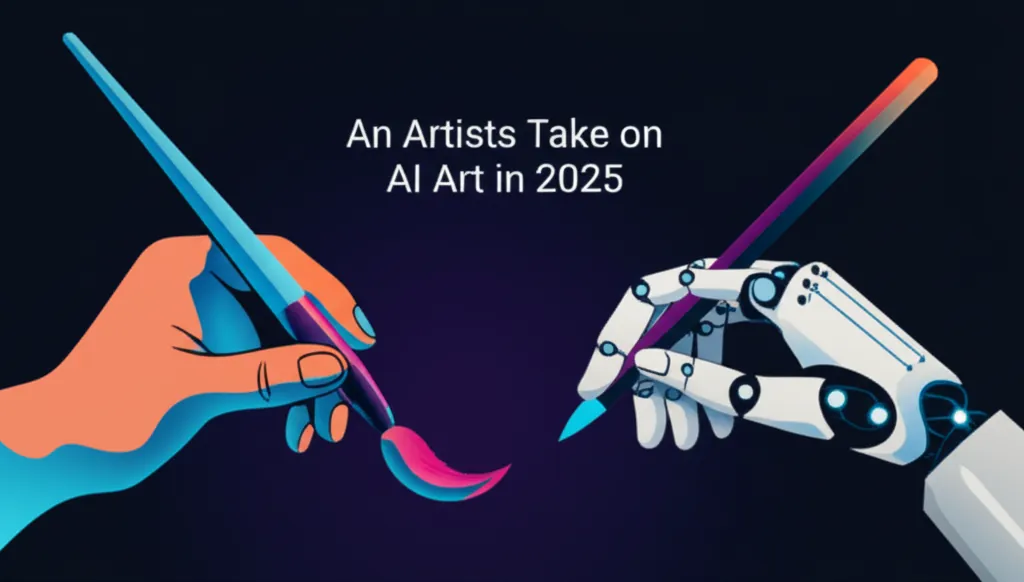Developer Offer
Try ImaginePro API with 50 Free Credits
Build and ship AI-powered visuals with Midjourney, Flux, and more — free credits refresh every month.
Daniel Kwan Urges Hollywood To Unite Against AI Onslaught
A Call to Action for Hollywood's Future
At a recent high-profile discussion in West Hollywood, Daniel Kwan, the Oscar-winning filmmaker behind the acclaimed Everything Everywhere All at Once, delivered a powerful message about the future of creativity. Alongside technology futurist Jaron Lanier, Kwan tackled the pressing question: "Can human storytelling survive the algorithm?" The conversation, presented by Nicolas Berggruen’s Studio B, quickly zeroed in on the anxieties surrounding artificial intelligence and its encroachment into the entertainment industry.
The defining moment of the evening came when Kwan passionately outlined a proactive strategy for how Hollywood should confront the rise of AI. His words resonated deeply with an audience of industry insiders, including filmmaker Michael Mann and Kwan's own producer, Jonathan Wang.
Reclaiming Power from the Tech Industry
Kwan challenged the prevailing sense of inevitability that he has observed in conversations across Hollywood. "There’s this feeling that this tech is inevitable," he noted. "It’s coming and it’s infiltrating our industry and there’s nothing we can do about it." He urged his peers to reject this passive stance, reminding them of their unique expertise.
"I want to remind the people here who are filmmakers, you are experts. You’re experts in storytelling. You’re experts in filmmaking... We cannot allow the tech industry to set the terms for our industries."
His solution is a bold and unprecedented call for unity. Kwan argued that every pillar of the industry—studios, unions like the WGA and SAG-AFTRA, agencies, and even the Academy of Motion Picture Arts & Sciences—must form a collective front. "We have to do something unprecedented," he declared, "which is we have to bring together the studios, the unions, the Academy, agencies, basically everyone, as a unified front against the tech industry... We’re putting a line in the ground against another industry that is an invasive species."
This coalition, Kwan explained, would force tech companies to negotiate on Hollywood's terms, addressing critical issues like job transition, data dignity, copyright, and intellectual property.

Confronting Deepfakes and Misinformation
Beyond industry economics, Kwan raised alarms about the societal dangers of AI, particularly the proliferation of deepfakes and misinformation that pollute what he calls our "consensus truth." He offered a controversial but thought-provoking suggestion: that powerful AI tools should require a license or registration, much like a firearm. "You can do real damage with a photorealistic image or video," he stated.
His concern is not just theoretical. Kwan has drawn a personal line in the sand, vowing not to use generative AI in his professional work until these fundamental issues are addressed. "We are just silently letting them take over and not even putting up a fight, not just for our industry but for the world," he said.
A Futurist's Perspective on AI
Jaron Lanier, a virtual reality pioneer and scientist at Microsoft, provided a nuanced perspective from the tech world, emphasizing he was sharing personal views. He cautioned against personifying AI. "The thing is, AI isn’t a thing out there. It is a collaboration of us. It’s trained on your data," Lanier explained. "The moment you treat it as a noun, you’ve already lost.”
Lanier himself is exploring the creative potential of AI, collaborating with Natasha Lyonne on an upcoming film project called Uncanny Valley. However, he humorously acknowledged the precarious moment, describing his work in Hollywood as being like a "tourist in Vanuatu... I know it’s about to be underwater, but I just want to enjoy it."
The Grief and Acceptance of a New Reality
The conversation took place against a backdrop of broader action, with organizations like the Writers Guild of America East joining coalitions to lobby for responsible AI regulation, such as the People’s Action Plan.
In his closing remarks, Kwan offered a profoundly human take on the technological upheaval. He acknowledged that grappling with the implications of AI requires a mourning process for the future we once imagined.
"To learn about [AI] is to basically have to say goodbye to the future you thought was going to happen... The fact that Hollywood might not exist anymore... we’re saying goodbye to the future, and there’s a little bit of grief in that."
He encouraged the audience to allow themselves space for this grief to eventually move toward acceptance and, finally, to action. It’s a crucial step, he argued, for Hollywood to lead the way for other industries and take control of its own destiny before it's too late.

Compare Plans & Pricing
Find the plan that matches your workload and unlock full access to ImaginePro.
| Plan | Price | Highlights |
|---|---|---|
| Standard | $8 / month |
|
| Premium | $20 / month |
|
Need custom terms? Talk to us to tailor credits, rate limits, or deployment options.
View All Pricing Details

